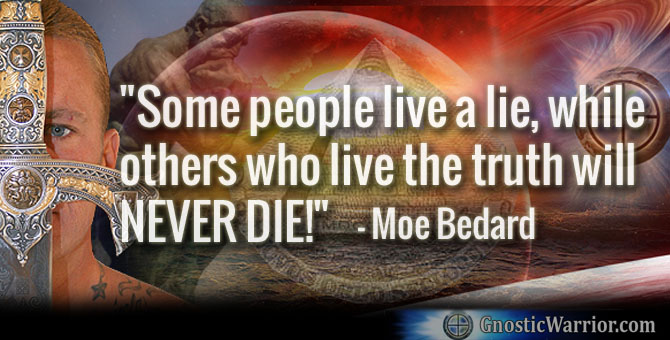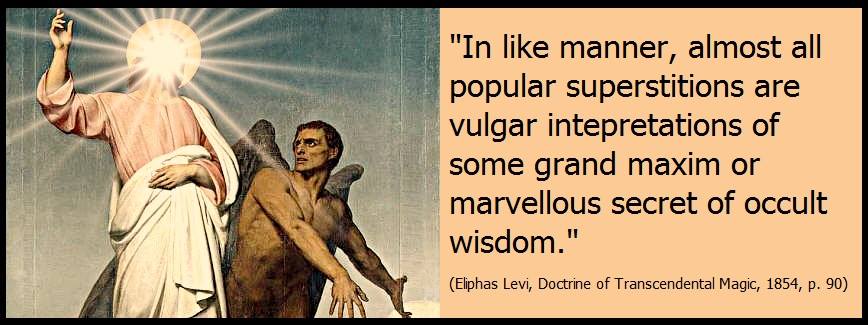Page 285
friendly or hostile “elementals” might be poured in upon our atmosphere, or some particular portion of it, and make the fact appreciable by the effects which ensue.
According to the ancient doctrines, the soulless elemental spirits were evolved by the ceaseless motion inherent in the astral light. Light is force, and the latter is produced by the will. As this will proceeds from an intelligence which cannot err, for it has nothing of the material organs of human thought in it, being the superfine pure emanation of the highest divinity itself — (Plato’s “Father”) it proceeds from the beginning of time, according to immutable laws, to evolve the elementary fabric requisite for subsequent generations of what we term human races. All of the latter, whether belonging to this planet or to some other of the myriads in space, have their earthly bodies evolved in the matrix out of the bodies of a certain class of these elemental beings which have passed away in the invisible worlds. In the ancient philosophy there was no missing link to be supplied by what Tyndall calls an “educated imagination”; no hiatus to be filled with volumes of materialistic speculations made necessary by the absurd attempt to solve an equation with but one set of quantities; our “ignorant” ancestors traced the law of evolution throughout the whole universe. As by gradual progression from the star-cloudlet to the development of the physical body of man, the rule holds good, so from the universal ether to the incarnate human spirit, they traced one uninterrupted series of entities. These evolutions were from the world of spirit into the world of gross matter; and through that back again to the source of all things. The “descent of species” was to them a descent from the spirit, primal source of all, to the “degradation of matter.” In this complete chain of unfoldings the elementary, spiritual beings had as distinct a place, midway between the extremes, as Mr. Darwin’s missing-link between the ape and man.
No author in the world of literature ever gave a more truthful or more poetical description of these beings than Sir E. Bulwer-Lytton, the author of Zanoni. Now, himself “a thing not of matter” but an “Idea of joy and light,” his words sound more like the faithful echo of memory than the exuberant outflow of mere imagination.
“Man is arrogant in proportion of his ignorance,” he makes the wise Mejnour say to Glyndon. “For several ages he saw in the countless worlds that sparkle through space like the bubbles of a shoreless ocean, only the petty candles . . . that Providence has been pleased to light for no other purpose but to make the night more agreeable to man. . . . Astronomy has corrected this delusion of human vanity, and man now reluctantly confesses that the stars are worlds, larger and more glorious than his own. . . . Everywhere, then, in this immense design, science
Page 286
brings new life to light. . . . Reasoning, then, by evident analogy, if not a leaf, if not a drop of water, but is, no less than yonder star, a habitable and breathing world — nay, if even man himself, is a world to other lives, and millions and myriads dwell in the rivers of his blood, and inhabit man’s frame, as man inhabits earth — common sense (if our schoolmen had it) would suffice to teach that the circumfluent infinite which you call space — the boundless impalpable which divides earth from the moon and stars — is filled also with its correspondent and appropriate life. Is it not a visible absurdity to suppose that being is crowded upon every leaf, and yet absent from the immensities of space! The law of the great system forbids the waste even of an atom; it knows no spot where something of life does not breathe. . . . Well, then, can you conceive that space, which is the infinite itself, is alone a waste, is alone lifeless, is less useful to the one design of universal being . . . than the peopled leaf, than the swarming globule? The microscope shows you the creatures on the leaf; no mechanical tube is yet invented to discover the nobler and more gifted things that hover in the illimitable air. Yet between these last and man is a mysterious and terrible affinity. . . . But first, to penetrate this barrier, the soul with which you listen must be sharpened by intense enthusiasm, purified from all earthly desires. . . . When thus prepared, science can be brought to aid it; the sight itself may be rendered more subtile, the nerves more acute, the spirit more alive and outward, and the element itself — the air, the space — may be made, by certain secrets of the higher chemistry, more palpable and clear. And this, too, is not magic as the credulous call it; as I have so often said before, magic (a science that violates nature) exists not; it is but the science by which nature can be controlled. Now, in space there are millions of beings, not literally spiritual, for they have all, like the animalcula unseen by the naked eye, certain forms of matter, though matter so delicate, air-drawn, and subtile, that it is, as it were, but a film, a gossamer, that clothes the spirit. . . . Yet, in truth, these races differ most widely . . . some of surpassing wisdom, some of horrible malignity; some hostile as fiends to men, others gentle as messengers between earth and heaven. . . . Amid the dwellers of the threshold is one, too, surpassing in malignity and hatred all her tribe; one whose eyes have paralyzed the bravest, and whose power increases over the spirit precisely in proportion to its fear.

Moe is the founder of GnosticWarrior.com. He is a father, husband, author, martial arts black belt, and an expert in Gnosticism, the occult, and esotericism.

![How one in the province of the Northumbrians, rose from the dead, and related many things which he had seen, some to be greatly dreaded and some to be desired [Circ. 696 A.D.] | Book 5 | Chapter 11 How one in the province of the Northumbrians, rose from the dead, and related many things which he had seen, some to be greatly dreaded and some to be desired [Circ. 696 A.D.] | Book 5 | Chapter 11](https://www.gnosticwarrior.com/wp-content/plugins/contextual-related-posts/default.png)




